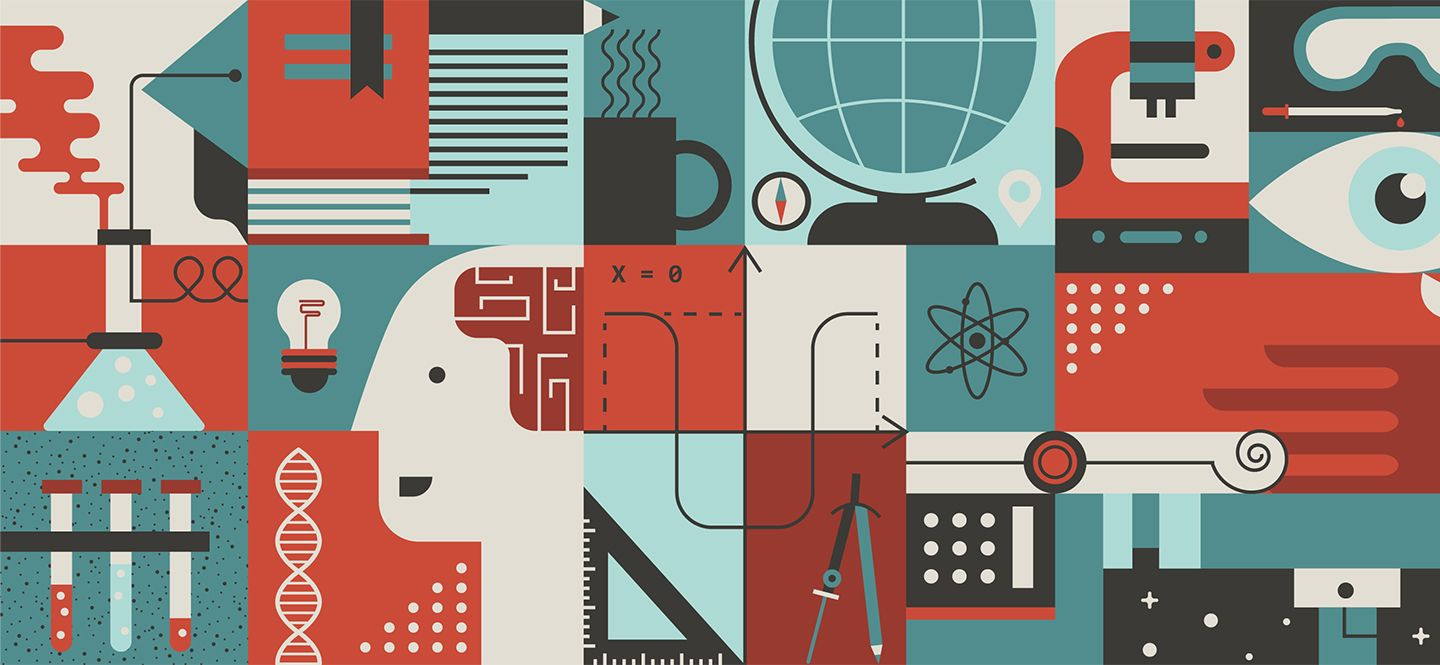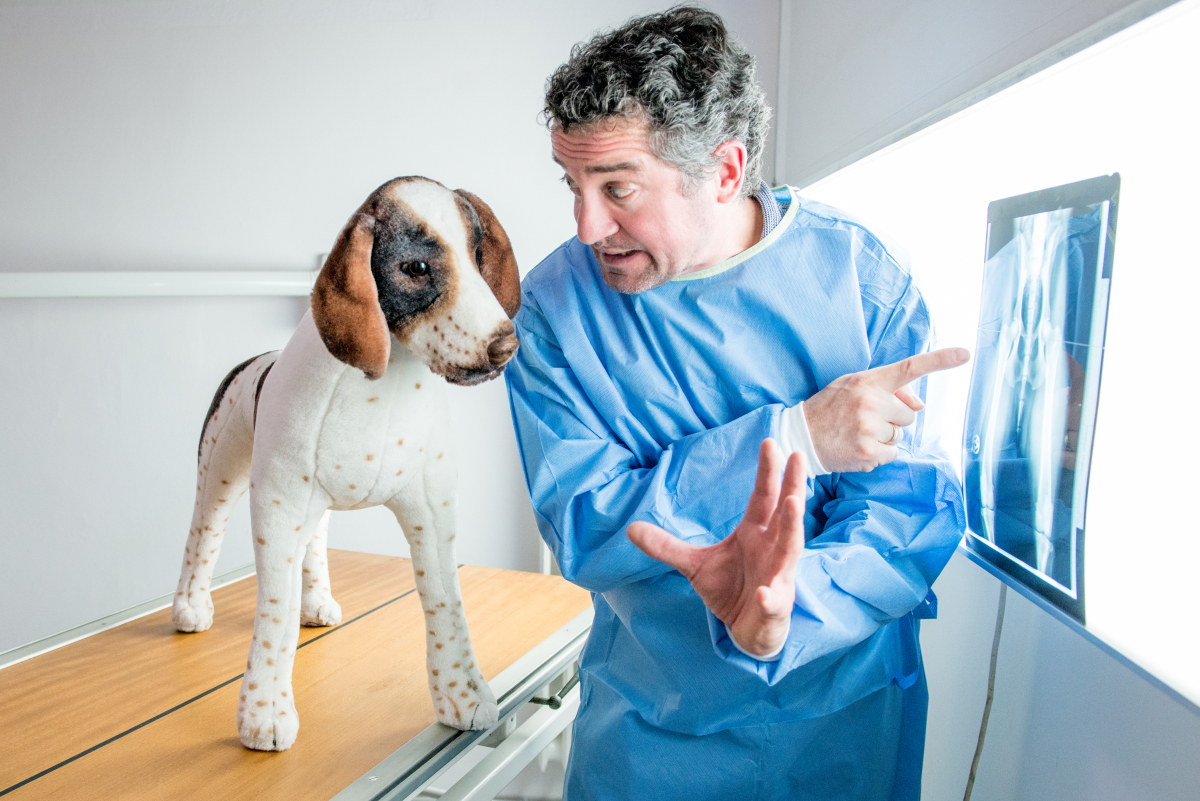
Kit8 d.o.o. – stock.adobe.com
Animal rights activists are calling for the abolition of all animal experiments, which makes researchers fear for medical progress. What is the discourse on this topic like in Germany and what does it take for society keep an open mind on the topic and reach the right value judgements?
The number of animals used in research experiments has fallen in Germany in recent years. In contrast, technical systems based on animal or human cells or tissue cultures are increasingly being used for laboratory experiments. Such animal-free technologies are being developed with great vigour around the world and enable enormous gains in knowledge. At the same time, scientists argue that animal testing will remain indispensable in research for the time being.
Do animal experiments have a lobby?
Some critics of animal experiments say there is simply an obstinate adherence to old ways – researchers are just sticking to their usual routines. Do animal experiments possibly have something like a lobby?
‘When I look at the lobby register kept at the Bundestag, though, animal welfare organisations calling for the abolition of animal experiments seem to be more politically active,’ says Andre Bleich, describing his impression of the roles involved in the discourse.
Bleich is familiar with the debates – and the various facets of working with animals in research: he is Director of the Institute for Laboratory Animal Science and the Central Animal Laboratory at Hannover Medical School (MHH). He heads the research network 'R2N - Replace and Reduce in Lower Saxony', which develops technologies to replace animal experiments. He is also the spokesperson for a DFG-funded consortium that is developing methods to objectively assess the stress on laboratory animals.

Prof Dr Bernhard Hiebl, University of Veterinary Medicine Hannover Foundation, took a critical look at the use of animals in experiments at the Herrenhausen Late event 'Can we do without them? Alternatives to animal testing'.
Sensible, necessary, and ethically justifiable
And how does research position itself in the debate? ‘I don't see any signs that research is merely sticking to animal experiments per se,’ says Bleich. He and his colleagues use animal models to research human diseases. He considers every animal experiment carried out in medical research at MHH to be sensible, necessary, and ethically justifiable. ‘Otherwise, the application to allow such experiments won't leave my desk,’ he says – and assumes that this also applies to research establishments throughout Germany.
No animal experiments, less knowledge
‘In the current situation, a general ban on animal testing in Germany would mean that we would no longer be able to research certain things,’ explains Bleich. This is particularly true of research into widespread diseases such as cancer, chronic illnesses, neuronal and infectious diseases, as well as the further development of implants and transplants. Of course, not every issue has to be dealt with by using animals, Bleich emphasises. Notwithstanding: ‘Certain issues will mature in their complexity to such an extent that people will want to know: Is what we are observing here in the test tube real? Does the presumed causal relationship exist? And what physiological mechanisms are behind it?’
If researchers were to completely dispense with animal experiments, they would miss out on important findings. This assessment is also passed on to politicians by the specialist bodies in the relevant research fields. ‘Science in these fields has become more active in its dialogue with politicians and the public,’ says Bleich. However, their aim is not to persuade politicians to stick to animal experiments. ‘We take a public stance on certain aspects in order to explain the facts and contribute to an objective debate on the subject.’
In the current situation, a general ban on animal testing in Germany would mean that we would no longer be able to research certain things
Discourse characterised by emotion
And what does this debate currently look like? The discourse is strongly characterised by emotions,' says Roman Stilling, speaker at the platform 'Understanding animal experiments'. The emotions raised around the debate arise primarily because people believe animal testing always means potentially inflicting pain, suffering and harm on an animal. 'That's the legal definition – otherwise it wouldn't formally be animal testing.' We shouldn't forget, he adds, why experiments are carried out on animals: 'It's because we can't do it on humans.'
One – perhaps the – central question we ask ourselves when thinking about animal testing is therefore: do we place humans above animals in moral terms? Are we therefore allowed to knowingly subject animals to suffering and pain? The answer to this question will vary from person to person. Now, a society could be content to disagree on this point – agree to disagree, as the saying goes. 'But we haven't yet got that far,' says Roman Stilling. 'For that, we first need a differentiated, fact-based discourse.'
On the bright side: there are no shitstorms
In order to lay the foundations for such a discourse and involve more people in the debate, 'Understanding Animal Experiments' has launched the 'Transparent Animal Experiments Initiative', which has been joined by over 100 academic institutions and research-based companies – and the Volkswagen Foundation. Stilling explains what he believes can help steer the debate in a more constructive direction: 'Researchers should talk about animal experiments in the context of their research. Anyone reporting on new findings on dementia or infections, for example, should not conceal the methods used to generate these findings. And Stilling has good news: 'In recent years, we have seen that increased communication about animal experiments in the context of research does not necessarily provoke negative reactions. There have been no attacks or shitstorms against researchers who have dared to talk about their work with laboratory animals. Stilling sees this as a good sign that our society is able to have a more balanced discourse on animal testing.
Communication in a suitable environment
Based on facts, knowledge and understanding in context, people can then think it over and decide for themselves how they feel about animal experiments being used in research. However, this also raises the question of the consequences for those who reject animal testing on principle. Will they voluntarily refrain from using medicines or therapies because they were developed with the help of animal testing? Should doctors even inform their patients that beneficial methods of treatment have been developed with the application of experiments on animals?
Stilling is cautious about such ideas. 'We must not present people in emergency situations with ethical dilemmas,' he warns. 'Rather, we should provide information about animal experiments in a suitable environment, under appropriate conditions, and in the context of specific research questions. A flyer in the doctor's surgery could be useful for this, as could public discussion groups and information events. 'In any case, we have to actively reach out to the public,' he says. 'And we need to train our listeners to understand research processes better.
we need to train our listeners to understand research processes better
The challenge: weighing up knowledge gain against suffering
It would then also become clear that researchers only want to carry out an animal experiment if they have already generated sufficient prior knowledge in other ways to be able to expect a high gain in knowledge from the experiment. They have a hypothesis that they wish to test and can interpret the test results on the basis of clearly formulated questions.
Each and every experiment with animals must also be applied for at great expense. Under current law, the protection of animals has the highest priority, and animal experiments are subject to authorisation. In order to obtain such authorisation, researchers must demonstrate that the expected gain in knowledge outweighs the pain, suffering and harm to the laboratory animal. Stilling summarises the problem in the words of the Austrian animal ethicist Herwig Grimm: 'The image of the scales of justice is not correct.' This is because gaining knowledge, pain and suffering are difficult to quantify in themselves. Moreover, there is no standardised, comparable measure for either.
So how can those responsible make a judgement on the use of an animal experiment? 'We should operationalise this weighing up as far as possible using objectively measurable parameters,' says Roman Stilling. Ultimately, however, there is still room for discretion for the decision-makers on a case-by-case basis.
No application in the absence of basic research
When considering animal experiments, there are also differences between different kinds of research projects. In basic research, the aim is to gain knowledge per se. In more application-oriented research, which may lead to the development of new medical therapies, the suffering of animals tends to be weighed against the potential benefits for humans – public acceptance of such experiments is higher than for animal experiments conducted in basic research. When researchers apply for approval for an animal experiment, they must state whether they categorise their project as applied or basic research. The laboratory animal statistics, in which all animal experiments are recorded, also differentiate between these categories. But does this distinction really make sense? Is the question appropriate, and does it contribute to the public debate? Roman Stilling has his doubts. 'In the absence of basic research, the knowledge on which applied research is based would not exist,' he says. 'And the two often merge seamlessly.
The topic in all its facets deserves more visibility.
In order to make progress in the debate on animal testing, he would therefore like to see more appreciation for the foundations of biomedical research: 'There needs to be a clear commitment to basic research from politicians and the public,' says Stilling. 'With more understanding and appreciation behind them, researchers could also act very differently when they talk about knowledge production and the accompanying significance of animal experiments. The topic in all its facets deserves more visibility.
